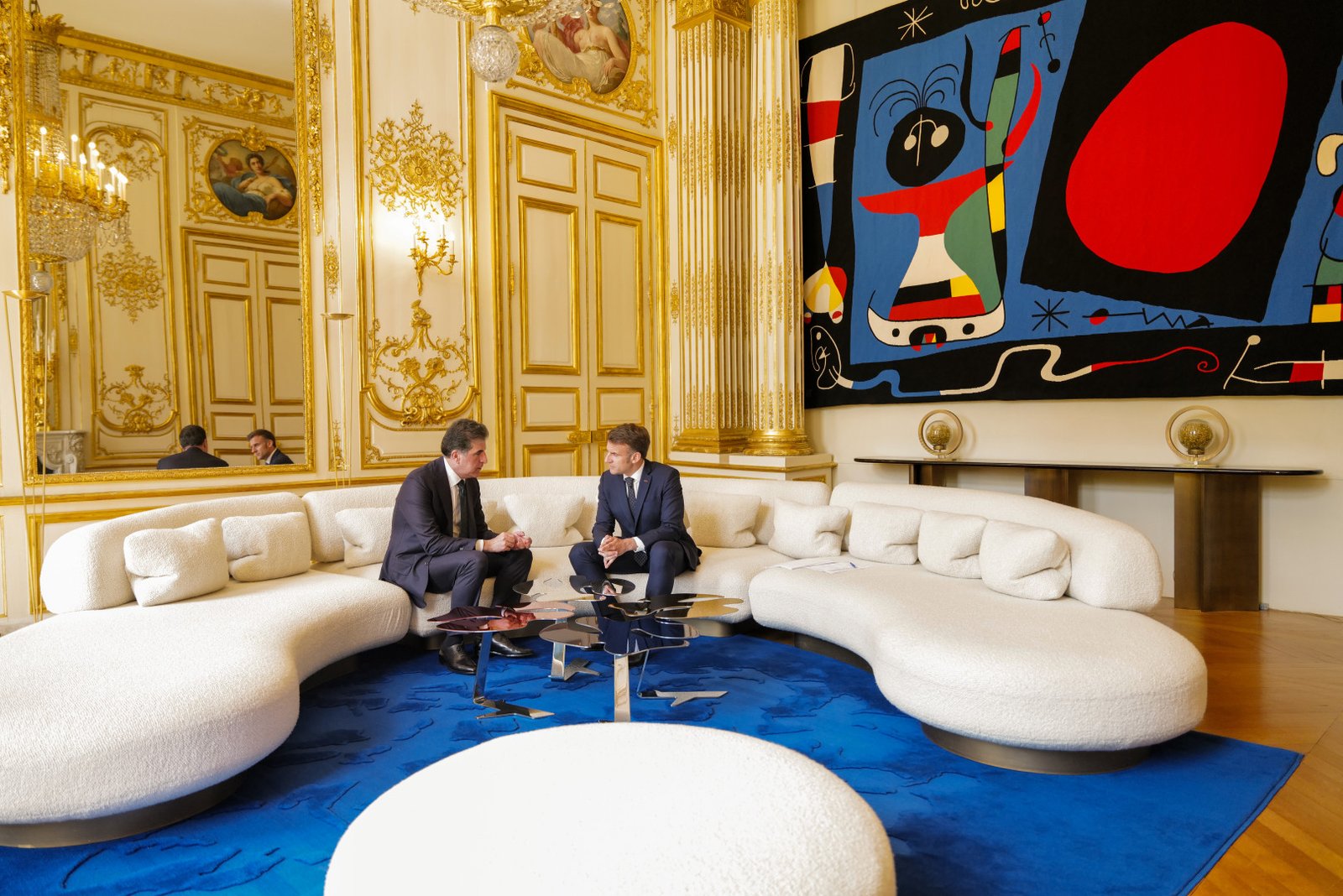Why Is Nechirvan Barzani Meeting with Macron in Paris?

Kurdistan Region President Nechirvan Barzani has met today with French President Emmanuel Macron in Paris. The meeting comes on the heels of Barzani’s visits to Turkish President Recep Tayyip Erdoğan and Syrian President Ahmed Al-Sharaa in Antalya. Notably, his meeting with Al-Sharaa marks the first time an official from the Kurdistan Region has held talks with Syria’s new leadership.
Syria is likely a central focus of the discussions between Macron and Barzani. It’s worth highlighting that Nechirvan Barzani has long maintained communication with Syrian Kurdish commander Mazloum Abdi—even prior to the collapse of the Assad regime. Turkey is almost certainly aware of this ongoing line of contact.
This diplomatic flurry unfolds amid what appears to be a breakthrough in relations between the Syrian Democratic Forces (SDF) and the central government in Damascus. A tentative agreement has been reached to integrate both the SDF and northeast Syria into the new Syrian state—a deal reportedly brokered with direct U.S. involvement and full Turkish awareness. Since then, a series of localized agreements between the SDF and Damascus have followed, including arrangements for two Kurdish neighborhoods in Aleppo, the demilitarization of Afrin alongside the appointment of a new Kurdish mayor, and agreements in the education sector and over Tishreen Dam. Notably, clashes between the SDF and Turkish-backed factions have ceased during this period.
Meanwhile, preparations are underway for a wide-ranging Syrian Kurdish conference in Qamishli, bringing together the rival factions: the pro-PKK Democratic Union Party (PYD) and the pro-KDP Kurdish National Council (ENKS). The goal is to unify Kurdish positions on the region’s future within the framework of the new Syrian state. France has long attempted to mediate between these two blocs, albeit with limited success.
What seems to have shifted is Turkey’s position. Ankara now appears to be greenlighting ENKS–PYD unity talks as part of its “Plan B” for northeast Syria—a more nuanced strategy aimed at integrating the ENKS in order to dilute the influence of PKK-aligned forces. This aligns with long-standing preferences in both Paris and Washington, though for different reasons: France seeks to bolster Kurdish leverage in negotiations over Syria’s future, while Turkey aims to alter the SDF’s internal balance of power without destabilizing the newly reconstituted Syrian state, which it views as increasingly aligned with its interests.
Given this context, the Syrian file, the potential ENKS–PYD rapprochement, and broader questions about engaging the new Syrian state are likely top items on the Macron–Barzani agenda.
The meeting with Syrian President Al-Sharaa is also likely to be discussed in broader terms. France’s historical ties to Syria—dating back to its colonial mandate—mean that Paris retains interests in the country that extend well beyond the Kurdish question.
Nechirvan Barzani's High-Level Diplomatic Meetings (2017-2025)
The meeting also comes amid peace negotiations between the Turkish government and the PKK regarding the latter’s disarmament, which was also discussed during Nechirvan’s meeting with Erdogan.
This is likely another topic for discussion: how credible are the PKK disarmament talks? And what consequences might they have for the region, including the future of Turkish influence and military presence in the Kurdistan Region?
Given the rapid global shifts and France’s deep entanglement in the Ukraine war, Paris has found itself increasingly bogged down in Europe, leading to a significant decline in its influence and engagement in the Middle East. France increasingly has fewer tools to shape regional dynamics: the Kurds represent one of the last sources of influence that France maintains in the Middle East, though this serves more as a window for influence rather than providing a decisive role in the region. The United States wields considerably more leverage with its military presence in both the Kurdistan Region and northeast Syria. The French presence is modest and insufficient to effect change independently; for instance, France’s military contribution to the US-led coalition is such that it can maintain this presence only if the US remains engaged.
France’s reliance on Kurds as one of its remaining instruments of influence in the region is evident in the frequency of meetings with Kurdistan Region leaders, which exceeds that of many non-European leaders. Macron has met with Nechirvan Barzani seven times since 2017 and was the first leader to welcome Nechirvan following the 2017 Kurdistan independence referendum, which resulted in an almost complete collapse of Kurdistan’s diplomatic standing. Macron has also met once with Kurdistan Regional Government (KRG) Prime Minister Masrour Barzani. For perspective: Nechirvan has met with Macron more frequently than with any Western leader, with only his meetings with Erdogan and UAE’s Mohammed Bin Zayed exceeding those with Macron.
The final aspect concerns French economic interests in the Kurdistan Region and Iraq as a whole. French companies have concentrated approximately 80% of their non-oil investment in Iraq within the Kurdistan Region. The total French investment is estimated at $3 billion, with over $2 billion directed to the Kurdistan Region.
In sum, the Macron–Barzani meeting reflects France’s strategic interest in remaining relevant in Syrian and Kurdish affairs, particularly at a time when the regional chessboard is rapidly shifting—and Paris has few remaining pieces in play.









